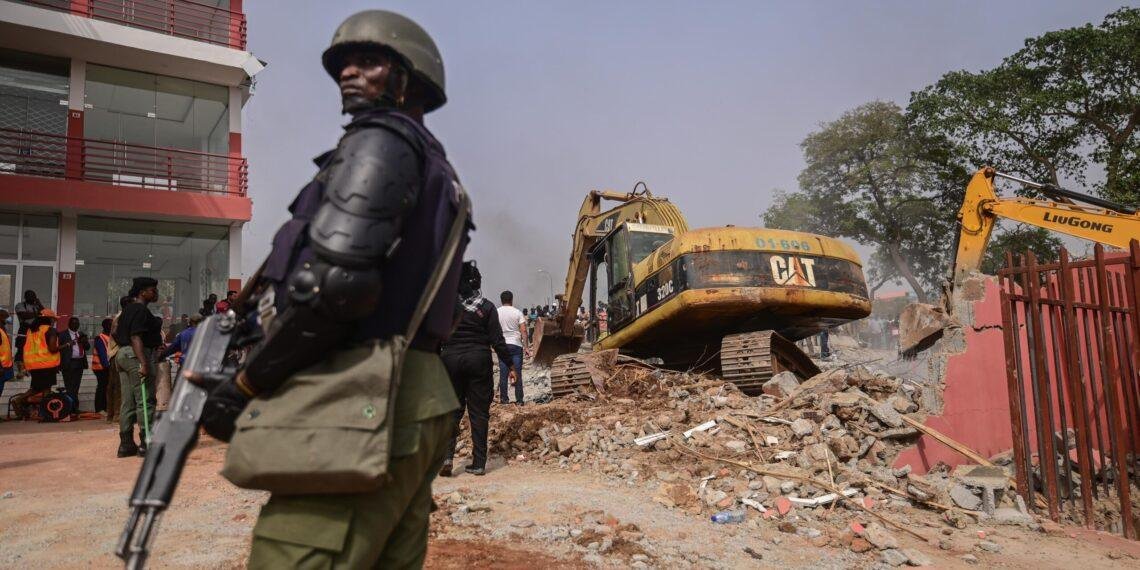The Federal Capital Territory (FCT) has become a battleground of competing priorities as the government’s crackdown on vandalism and criminal activities leads to the shutdown of pantaker (scrap) markets, causing significant economic and social disruptions.
Traders, stakeholders, and market officials are calling on the authorities to find alternative measures to combat crime without crippling legitimate businesses and livelihoods.
The ban on pantaker markets across the FCT followed a series of criminal activities, including the theft of public infrastructure such as manhole covers and streetlights. According to Olatunji Disu, the FCT Commissioner of Police, the decision to close the markets was reached during a security committee meeting on January 13.
“Scavengers are only allowed to operate at designated dumpsites on the city’s outskirts and suburbs,” Disu stated. He emphasized that recurring vandalism of public infrastructure posed a severe risk to residents and warranted decisive action.
The FCT Minister, Nyesom Wike, accused an iron smelting company, Abuja Steel Company, of being complicit in these crimes by purchasing stolen materials. While police investigations revealed stolen manhole covers among the company’s exhibits.
The company has strongly denied the allegations, maintaining that it operates strictly within legal and ethical frameworks.
Economic Impact on Traders
The ban on pantaker markets has sent shockwaves through the scrap trade ecosystem, with traders reporting massive daily financial losses. The Association of Fairly Used Building Materials Dealers of Nigeria estimates daily losses ranging between ₦30 million and ₦80 million due to the market closures.
Baffasale Baffa, the group’s public relations officer, urged the FCT government to reconsider its decision, highlighting the ripple effects on traders, government revenue, and the economy.
“We are already cooperating with the Minister of FCT because we want his government to succeed in eradicating criminal activities in Abuja,” Baffa said. “We have formed vigilante groups, union task forces, and other security measures to ensure our markets are not havens for criminals.”
Read also: NAPTIP uncovers baby factory in FCT, rescue 9 pregnant girls
Voices from the Markets
In Dawaki Pantaker Market, traders described their predicament as dire. Alhaji Abdullahi Muhammed, a market official, expressed frustration over what he sees as collective punishment for crimes committed elsewhere.
“We are innocent of the recent criminal activities that happened in other pantaker markets,” Abdullahi said. “We are law-abiding citizens and deserve fair treatment. We are willing to work with security agencies to investigate and report any criminal activities, but we shouldn’t suffer for others’ offenses.”
Abdullahi also condemned the arrest of the market’s chairman, Hapisu Abubakar, along with other officials, calling it unjust and demoralizing for a community already facing significant hardship.
Appeal for Dialogue
Traders across the FCT have appealed to the government to consider alternative strategies to combat crime without shutting down legitimate operations. They proposed measures such as stricter monitoring of market activities, issuance of identification cards for registered members, and collaboration with law enforcement to identify and apprehend criminals.
“Closing the markets is not the solution,” said Abdullahi. “We are ready to supply security agencies with useful information and ensure no stolen items are bought or sold here.”
The Government’s Perspective
The FCT authorities argue that the ban is a necessary measure to address the alarming rates of infrastructure vandalism, which they describe as a form of economic sabotage. Commissioner Disu stated that arrested suspects would face harsher penalties to deter future offenses.
“The punishment given to them is so menial that we notice we are recycling these criminals,” Disu said. “Removing manhole covers can cause fatal accidents, especially at night. We are determined to put an end to this menace.”
A Call for Balanced Solutions
While the government’s resolve to combat vandalism is commendable, the unintended consequences of the ban have left thousands of traders struggling to survive. Stakeholders are urging the FCT Minister and law enforcement agencies to adopt a more inclusive approach, balancing security concerns with the economic realities of the traders and their families.
As the two-week suspension of pantaker markets nears its conclusion, the FCT awaits a resolution that addresses the root causes of vandalism without jeopardizing the livelihoods of law-abiding citizens. The path forward will require collaboration, compromise, and a shared commitment to creating a safer and more prosperous community for all.






